کتاب بعد زلزله نوشتهی یکی از برجستهترین نویسندگان حال حاضر دنیا، هاروکی موراکامی، مجموعهای است شامل شش داستان جذاب که به توصیف خشونت پنهان در لایههای مختلف جامعهٔ مدرن ژاپن پرداخته.
معرفی و دانلود نسخه انگلیسی کتاب بعد از زلزله ، بعد زلزله ، پس لرزه
After the Quake
نام فارسی کتاب:
نویسنده:
هاروکی موراکامی
Haruki Murakami
درباره مجموعه داستان بعد از زلزله نوشته هاروکی موراکامی:
کتاب بعد زلزله نوشتهی یکی از برجستهترین نویسندگان حال حاضر دنیا، هاروکی موراکامی، مجموعهای است شامل شش داستان جذاب که به توصیف خشونت پنهان در لایههای مختلف جامعهٔ مدرن ژاپن پرداخته.
بعد از زلزله ۱۹۹۵ در شهر کوبه ژاپن، هاروکی موراکامی (Haruki Murakami) شش قصه در رابطه با چند شخصیت مختلف نوشت که هر کدام در نقاط مختلفی از جهان میزیستند و به ظاهر هیچ ارتباطی با شهر کوبه و زلزلهای که در این شهر رخ داد، نداشتند. اما زلزله سایهی سنگیناش را روی زندگیشان میاندازد و وادارشان میکند از روالِ زندگی روزمره بیرون بزنند و پا به وادیهایی تازه بگذارند. در کتاب بعد زلزله (After the Quake) هر شش داستان از زاویه دید سوم شخص روایت میشود و برای شخصیتهای این کتاب، زلزلهٔ کوبه بازتاب گذشتهٔ فراموش شدهای است که پیشتر از اینها به خاکش سپرده بودند.
قصههای هاروکی موراکامی همیشه جزو پرطرفدارترین داستانهایی هستند که روایات روان و جذابی دارند. موضوعات هر کدام از داستانهای این اثر بدین شرح است:
«بشقاب پرنده در کوشیرو»: مردی که زنش او را ترک کرده. «منظرهای با اتوی چدنی»: مردی که عاشق آتش بازی است. «تایلند»: زنی سی سال از عمرش را در نفرت از مردی به سر برده که او را از بچهدار شدن محروم کرده است. «قورباغه عظیم توکیو را نجات میدهد»: کاتاگیری از سر کار بر میگردد و در خانهاش با قورباغه عظیمالجثهای برخورد میکند و قورباغه ادعا میکند ماموریت دارد توکیو را از شر کرم غولپیکری نجات دهد. «شیرینی عسلی»: سه دوست دانشگاهی در حالی که دو نفر از آنها با هم ازدواج کرده، بچهدار شده و طلاق گرفتهاند بعد از سالها با هم ملاقات کرده اما بر حسب اتفاق دوست سومی عاشق دخترشان میشود.
از ویژگیهای شاخص این مجموعه داستان میتوان به این موضوع اشاره کرد که هر کدام از این داستانها را یک سری نکات و رمز، به هم پیوند میدهد. در حقیقت برخی منتقدان آمریکایی بر این باورند که “بعد زلزله” مجموعه داستان نیست، بلکه یک رمان است.
هاروکی موراکامی متولد ۱۹۴۹ در کیوتوِ ژاپن است، اما خانوادهاش در زادگاهش نماندند و او نوجوانی و جوانی را در شوکوگاوا، آشیا، و کوبه گذراند. پدر و مادرش هر دو معلم زبان ژاپنی بودند. موراکامی در سیسالگی نخستین رمان خود را نوشت. گر چه در داستانهای موراکامی وهم و واقعیت را به هم میآمیزد و شخصیتهایش را در دام دنیاهایی میاندازد که مناسباتش را نمیفهمند. با اینکه زندگی ادامه دارد و شخصیتهای قصهاش اغلب از گزند خطرات جانِ سالم به درمیبَرند، اما از گذر مسیری که میپیمایند زیر و زبَر میشوند و کم پیش میآید آخر قصه، همانی باشند که اولش بودهاند.
معرفی کتاب های جدید در پیج اینستاگرام بیبلیوفایل
خلاصه کتاب بعد از زلزله نوشته هاروکی موراکامی:
این کتاب شامل شش داستان کوتاه است که هر کدام روایت و قصهی مجزایی دارند، اما ارتباط خیلی ظریفی میان آنها وجود دارد. داستان «اتویی در چشمانداز» راجعبه «کایوسکی» و «جونکو» است که در ساحلی آرام آتش روشن میکنند. حرفها و وصفحال آنها موضوع اصلی این داستان است. «تایلند» دربارهی نفرت «ساتسوکی» از مردی است که او را از بچهدار شدن محروم کرده است. او تمام روزهایش را با این حس عمیق و آزاردهنده سپری میکند. «اَبَرقورباغه توکیو را نجات میدهد» دربارهی مردی به نام «کاتاگیری» است که روزی وارد آپارتمانش میشود و قورباغهی عظیمالجثهای را میبیند که منتظرش نشسته است. قورباغه به مرد میگوید که ماموریت دارد تا توکیو را از کرم غولپیکری که در زیر زمین زندگی میکند و باعث زلزلهای مهیب میشود، نجات دهد. در «شیرینی عسلی» داستان سه دوست دوران دانشگاه به نامهای «جونپی»، «سایوکو» و «تاکاتسوکی» را میخوانیم که حالا دو نفر از آنها با هم ازدواج کردهاند و بچهدار شدهاند. «بشقابپرنده در کوشیرو» دربارهی مردی به نام «کومورا» است که همسرش در سکوتی ممتد فرو میرود و یک روز ناگهان ناپدید میشود. در داستان «همهی بچههای خدا حق دارند برقصند» داستان پسر جوانی به نام «یوشیا» است که با مادرش زندگی میکند و درگیر ماندن و رفتن است.
نکوداشت های کتاب بعد از زلزله
در بخشی از کتاب بعد زلزله نوشته موراکامی میخوانیم:
کاتاگیری بعدازظهرِ هفدهم فوریه تیر خورد. کارِ روزانهاش را تمام کرد و داشت در راه برگشتن از تراست بانک توی یکی از خیابانهای محلهی شینجوکو راه میرفت که مرد جوانِ کت چرمیپوشی پرید جلوش. مرد چهرهای بیحالت داشت و اسلحهی کوچکِ سیاهرنگی توی یکی از دستهایش گرفته بود. اسلحه آنقدر کوچک و آنقدر سیاه بود که سخت میشد باور کرد واقعی است. کاتاگیری خیره شد به چیزی که توی دستِ مرد بود، بیآنکه در چهرهاش بروزی باشد از اینکه اسلحه به سمتش نشانه رفته؛ و مرد ماشه را چکاند. همهچیز خیلی سریع اتفاق افتاد: بهنظر کاتاگیری منطقی نمیآمد؛ اسلحه اما واقعاً شلیک شده بود.
کاتاگیری حرکتِ فشنگ را در هوا دید و همان لحظه ضربهای حس کرد، انگار کسی با پتک کوبیده باشد بر کتفِ راستاش. اما دردی احساس نکرد. ضربه پَهنش کرد روی پیادهرو. کیفِ چرمی توی دستِ راستاش سمتی دیگر پرت شد. مرد دوباره اسلحه را گرفت طرفش. صدای شلیکِ دوم طنین انداخت. تابلوِ رستورانِ کوچکِ توی پیادهرو، پیش چشمش فرو ریخت. صدای فریادهای مردم را شنید. عینکش افتاده بود و همهچیز تار و مبهم بود. گیجومنگ میدانست که مرد دارد با هفتتیرِ نشانه رفته میآید طرفش. با خودش فکر کرد قرار است بمیرم. قورباغه گفته بود ترس واقعی آن ترسی است که آدم در ذهن حس میکند. کاتاگیری جلوِ جریانِ ذهنش را گرفت و توی سکوتی بیوزن غرقه شد.
جونکو گفت: «من دارم می رم دم ساحل آتیش بازی.» کایسوکی با اخم پرسید: «باز هم میاکی؟ شوخیت گرفته؟ می دونی که، فوریه ست. ساعت هم دوازده شبه. الان می خواین برین آتیش درست کنین؟» «مشکلی نیست. تو نمی خواد بیای. من خودم می رم.» کایسوکی آهی کشید؛ «نه، می آم. یه دقیقه وقت بده لباس عوض کنم.» آمپلی فایرش را خاموش کرد، روی زیرشلواری اش شلوار پوشید، پولیور، و رویش ژاکتی کرک دار که زیپش را تا دم چانه داد بالا. جونکو روسری ای پیچید دور گردنش و کلاهی بافتنی هم سرش گذاشت. وقتی داشتند می رفتند سمت ساحل کایسوکی گفت: «دیوونه این شماها، چی تو آتیش درست کردن هست که این قدر باهاش کیف می کنین؟»
بریدههایی از کتاب بعد زلزله نوشته هاروکی موراکامی:
دلیل نداره چیزی رو که با چشمت می بینی، واقعی باشه.
مشکل اینه که هرگز به من چیزی ندادی. یا دقیقتر بگم چیزی در درونت نیست که بتونی به من بدی.
توضیحات انگلیسی کتاب After the Quake نوشته Haruki Murakami
Set at the time of the catastrophic 1995 Kobe earthquake, the mesmerizing stories in After the Quake are as haunting as dreams and as potent as oracles.
The six stories in Haruki Murakami’s mesmerizing collection are set at the time of the catastrophic 1995 Kobe earthquake, when Japan became brutally aware of the fragility of its daily existence. But the upheavals that afflict Murakami’s characters are even deeper and more mysterious, emanating from a place where the human meets the inhuman.
An electronics salesman who has been abruptly deserted by his wife agrees to deliver an enigmatic package—and is rewarded with a glimpse of his true nature. A man who has been raised to view himself as the son of God pursues a stranger who may or may not be his human father. A mild-mannered collection agent receives a visit from a giant talking frog who enlists his help in saving Tokyo from destruction. As haunting as dreams, as potent as oracles, the stories in After the Quake are further proof that Murakami is one of the most visionary writers at work today.
بخش ها و جملاتی از نسخه انگلیسی کتاب بعد از زلزله :
After the Quake Quotes
“No matter how far you travel, you can never get away from yourself.”
― After the Quake
“When the fire goes out, you’ll start feeling the cold. You’ll wake up whether you want to or not.”
― After the Quake
“What I was chasing in circles must have been the tail of the darkness inside me.”
― After the Quake
“I want to write about people who dream and wait for the night to end, who long for the light so they can hold the ones they love.”
― After the Quake
“No matter how far you travel, you can never get away from yourself. It’s like your shadow. It follows you everywhere. -Komura”
― After the Quake
“The whole terrible fight occured in the area of imagination. That is the precise location of our battlefield. It is there, that we experience our victories and defeats.”
― After the Quake
“It’s just a feeling I have. What you see with your eyes is not necessarily real. My enemy is, among other things, the me inside me.”
― After the Quake
“He once told me about polar bears – what solitary animals they are. They mate just once a year. One time in a whole year. There is no such thing as a lasting male-female bond in their world. One male polar bear and one female polar bear meet by sheer chance somewhere in the frozen vastness, and they mate. It doesn’t take long. And once they are finished, the male runs away from the female as if he is frightened to death: he runs from the place where they have mated. He never looks back – literally. The rest of the year he lives in deep solitude. Mutual communications – the touching of two hearts – do not exist for them. So, that is the story of polar bears – or at least it is what my employer told me about them.’
How very strange.’
Yes, it is strange. I remember asking my employer, ‘ Then what do polar bears exist for?’ ‘ Yes, exactly,’ he said with a big smile. ‘Then what do we exist for?”
― After the Quake
“Our hearts are not stones. A stone may disintegrate in time and lose its outward form. But hearts never disintegrate. They have no outward form, and whether good or evil, we can always communicate them to one another.”
― After the Quake
“It’s not right for one friend to do all the giving and the other to do all the taking: that’s not read friendship.”
― After the Quake
“Strange and mysterious things, though, aren’t they – earthquakes? We take it for granted that the earth beneath our feet is solid and stationary. We even talk about people being ‘down to earth’ or having their feet firmly planted on the ground. But suddenly one day we see that it isn’t true. The earth, the boulders, that are supposed to be solid, all of a sudden turn as mushy as liquid – From the short story “Thailand”
― After the Quake
“A fire can be any shape it wants to be. It’s free. So it can look like anything at all, depending on what’s inside the person looking at it. If you get this deep, quiet kind of feeling when you look at a fire, that’s because it’s showing you the deep, quiet kind of feeling you have inside yourself…”
― After the Quake
“Don’t tell me anymore. You should have your dream, as the old woman told you to. I understand how you feel, but if you put those feelings into words they will turn into lies. (from Thailand)”
― After the Quake
“Have your dream…What you need now more than anything is discipline. Cast off mere words. Words turn into stone. (from Thailand)”
― After the Quake
“You are a beautiful person, Doctor. Clearheaded. Strong. But you seem always to be dragging your heart along the ground. From now on, little by little, you must prepare yourself to face death. If you devote all of your future energy to living, you will not be able to die well. You must begin to shift gears, a little at a time. Living and dying are, in a sense, of equal value.”–Nimit in “Thailand”
― After the Quake
“I spent thirty-three years in another man’s shadow. I went everywhere he went, I helped him with everything he did. I was in a sense a part of him. When you live like that for a long time, you gradually lose track of what it is you yourself really want out of life”
― After the Quake
“From now on, little by little, you must prepare yourself to face death. If you devote all of your future energy to living, you will not be able to die well. You must begin to shift gears, a little at a time. Living and dying are, in a sense, of equal value.”
― After the Quake
“What you see with your eyes is not necessarily real.”
― After the Quake
“I want to write stories that are different from the ones I’ve written so far, Junpei thought: I want to write about people who dream and wait for the night to end, who long for the light so they can hold the ones they love. But right now I have to stay here and keep watch over this woman and this girl. I will never let anyone-not anyone-try to put them into that crazy box- not even if the sky should fall or the earth crack open with a roar.”
― After the Quake
“He would eventually have to pass through the forest, but he felt no fear. Of course – the forest was inside him, he knew, and it made him who he was.”
― After the Quake
“As usual, Junko thought about Jack London’s ‘To Build a Fire.’ It was the story of a man traveling alone through the snowy Alaskan interior and his attempts to light a fire. He would freeze to death unless he could make it catch. The sun was going down. Junko hadn’t read much fiction, but that one short story she had read again and again, ever since her teacher had assigned it as an essay topic during summer vacation of her first year in high school. The scene of the story would always come vividly to mind as she read. She could feel the man’s fear and hope and despair as if they were her own; she could sense the very pounding of his heart as he hovered on the brink of death. Most important of all, though, was the fact that the man was fundamentally longing for death. She knew that for sure. She couldn’t explain how she knew, but she knew it from the start. Death was really what he wanted. He knew that it was the right ending for him. And yet he had to go on fighting with all his might. He had to fight against an overwhelming adversary in order to survive. What most shook Junko was this deep-rooted contradiction.
The teacher ridiculed her view. ‘Death is really what he wanted? That’s a new one for me! And strange! Quite ‘original,’ I’d have to say.’ He read her conclusion aloud before the class, and everybody laughed.
But Junko knew. All of them were wrong. Otherwise how could the ending of the story be so quiet and beautiful?”
― After the Quake
“I just gave them a little scare. A touch of psychological terror. As Joseph Conrad once wrote, true terror is the kind that men feel towards their imagination. (from Super-frog Saves Tokyo)”
― After the Quake
“The world is full of incomprehensible words”
― After the Quake
“To understand something and to put that something into a form that you can see with your own eyes are two completely different things. If you could manage to do both equally well, living would be a lot simpler (from Honey Pie)”
― After the Quake
“You know something?” she said.
“What?”
“I’m completely empty.”
“Yeah?”
“Yeah.”
― After the Quake
“What was I hoping to gain from this?…Was I trying to confirm the ties that make it possible for me to exist here and now. Was I hoping to be woven into some new plot, to be given some new and better defined role to play? No, he thought, that’s not it. What I was chasing in circles must have been the tail of darkness inside me. I just happened to catch sight of it, and followed it, and clung to it, and in the end let it fly into still deeper darkness. I’m sure I’ll never see it again.”
― After the Quake
“Living and dying are, in a sense, of equal value.”
― After the Quake
“There’s nothing at all in here,” she said much later, her voice hoarse. “I’m cleaned out. Empty.”
― After the Quake
“Opera lovers may be the narrowest people in the world.”
― After the Quake
“It’s kind of embarrassing to put this into words,” she said, “but I want to stay friends with you, Junpei. Not just for now, but even after we get older. A lot older. I love Takatsuki, but I need you, too, in a different way. Does that make me selfish?”
― After the Quake
“This life is nothing but a short, painful dream.”
― After the Quake
“Listen to this, Nimit. Follow Coleman Hawkins’ improvised lines very carefully. He is using them to tell us something. Pay very close attention. He is telling us the story of the free spirit that is doing everything it can to escape from within him. That same kind of spirit is inside me, inside you. There–you can hear it, I’m sure: the hot breath, the shivering heart. (Thailand)”
― After the Quake
“Words left their mouths to hang frozen in midair.”
― After the Quake
“Are you prepared to die?”
“I am half dead already,” Nimit said as if stating the obvious.”
― After the Quake
“And besides, thought Yoshida, If it was all right for God to test man, why was it wrong for man to test God?”
― After the Quake
“He found it increasingly difficult to accept the strict codes of the sect that clashed with ordinary values.”
― After the Quake
“That box contains the ‘something’ that was inside you. You didn’t know that when you carried it here and gave it to Keiko with your own hands. Now you’ll never get it back.”
― After the Quake
“All he had ever prayed for was the ability to catch outfield flies, in answer to which God had bestowed upon him a penis that was bigger than anybody else’s. What kind of world came up with such idiotic bargains?”
― After the Quake
― After the Quake
- لینک دانلود فایل بلافاصله بعد از پرداخت وجه به نمایش در خواهد آمد.
- همچنین لینک دانلود به ایمیل شما ارسال خواهد شد به همین دلیل ایمیل خود را به دقت وارد نمایید.
- ممکن است ایمیل ارسالی به پوشه اسپم یا Bulk ایمیل شما ارسال شده باشد.
- پسورد تمامی فایل ها www.bibliofile.ir است.
- در صورتی که به هر دلیلی موفق به دانلود فایل مورد نظر نشدید با ما تماس بگیرید.
- در صورتی که این فایل دارای حق کپی رایت و یا خلاف قانون می باشد ، لطفا به ما اطلاع رسانی کنید.
 بیبلیوفایل | بزرگترین مرکز فروش محصولات دانلودی
بیبلیوفایل | بزرگترین مرکز فروش محصولات دانلودی

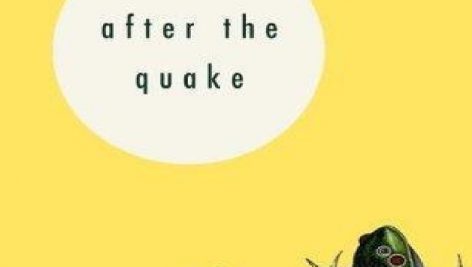
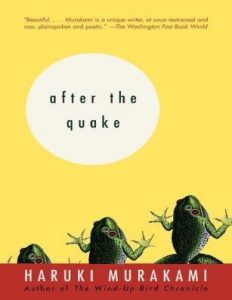



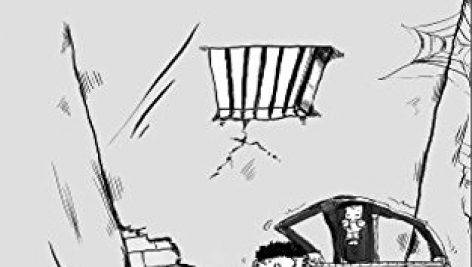
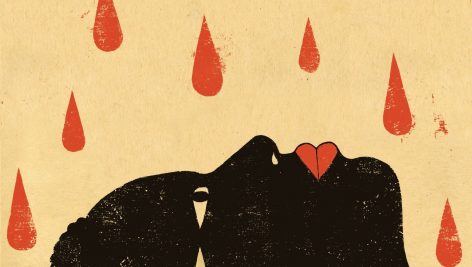


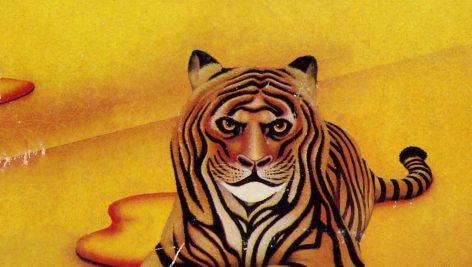
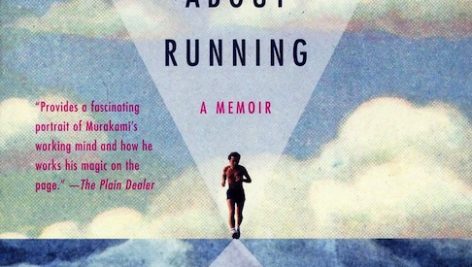
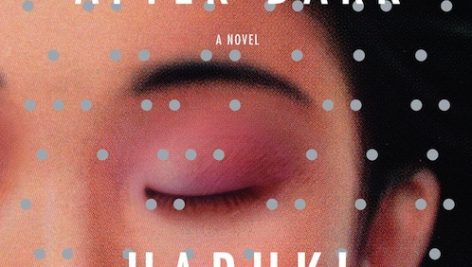


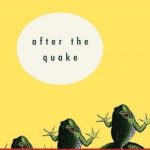
هنوز هیچ نقد و بررسی وجود ندارد.